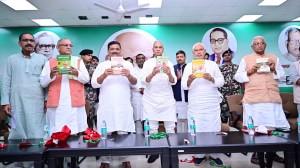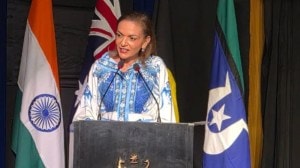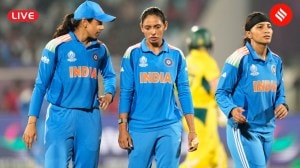Soon after the Supreme Court order Thursday empowering states to go ahead with sub-categorisation within the Scheduled Castes for the purpose of reservations, the ‘Dalit-A Mahapanchayat Haryana’ announced that it would meet Chief Minister Nayab Singh Saini to press that a legislation to enforce this be introduced in the ongoing Monsoon Session.
Several Dalit groups, excluding those who work in the leather industry, have been seeking quota within the overall 20% SC quota to help them avail the benefits of reservation. The Dalit A Mahapanchayat is one of them. However, the group that works in the leather industry and enjoys a level of affluence has been opposed, saying such a measure would hurt Dalit unity. After Thursday’s order, they said they would be meeting BJP leaders to demand that the status quo be maintained on the issue in Haryana.

With the Assembly polls in Haryana coming soon, both sides realise that they can put pressure on parties to concede their demands. Dalit-A Mahapanchayat president Devi Das Valmiki said: “We will hold a big rally if a quota within the SC quota for government jobs is not given before the Assembly polls.”
Story continues below this ad
The Dalit A Mahapanchayat also believes it has a strong case because, in March 2020, conceding the demand of Dalit groups like it, the Haryana Assembly had passed a Bill creating a quota within the SC quota for seats in the state’s higher educational institutions for a newly designated “Deprived Scheduled Castes” category. This category includes 36 communities, such as the Valmikis, Bazigars, Sansis, Dehas, Dhanaks and Saperas.
The Dalit A Mahapanchayat wants a similar sub-quota now for government jobs.
According to government sources, the ‘Deprived Scheduled Castes’ cover almost the entire SC category, which comprises around 11% of the state’s population.
Haryana was an interested party in the case before the Supreme Court as in 1994, the then Congress government in the state led by Bhajan Lal had bifurcated the SC quota into two groups – ‘Block A’, comprising the more deprived Dalit groups, and ‘Block B’, comprising the Dalits working in the leather industry.
Story continues below this ad
In 2006, the Punjab and Haryana High Court had quashed the 1994 notification, citing the decision of a five-judge Bench of the Supreme Court in the E V Chinnaiah vs State Of Andhra Pradesh And Others case. On Thursday, a seven-judge Bench of the Supreme Court overruled this order.
Devi Das Valmiki told The Indian Express: “The current BJP government should have implemented the quota within the SC reservation in government jobs too when it introduced one for admission in educational institutions in 2020. After the latest Supreme Court decision, it should be implemented as early as possible, without delay. The ball is now in the court of the state government.”
He called the Supreme Court decision a “lifeline” for them. “From 1966 to now, no one from our community has become a Lok Sabha MP from Haryana, even as the state has two seats reserved for SCs.”
Devi Das Valmiki claimed that after the 2004 apex court order, “even the graduates or postgraduates from our communities did not get enough employment in the state”.
Story continues below this ad
However, the president of the Hisar unit of the ‘Dr B R Ambedkar Sabha’, Raghubir Sunda, termed the Supreme Court order “unfortunate”, warning that it could have “adverse effects for SCs”.
“A significant number of government posts out of the 20% set aside for SCs are lying vacant in Haryana with the remark ‘not found a suitable candidate’. The Supreme Court judgment would just increase this backlog for government jobs. More government posts for SCs will fall vacant. Even in educational institutions, the representation of SCs has decreased after the implementation of a quota within the SC quota,” Sunda claimed.
He added: “When there is no caste-based census, then how can such a decision be implemented?”
Independent voices within SC groups called for unity among community members in “the larger interest”. A Scheduled Caste leader who did not wish to be identified said: “This is the time for unity among SCs for upliftment of the community members. We should not fall prey to the agenda of divisive politics, and avoid any conflict on the issue.”

































